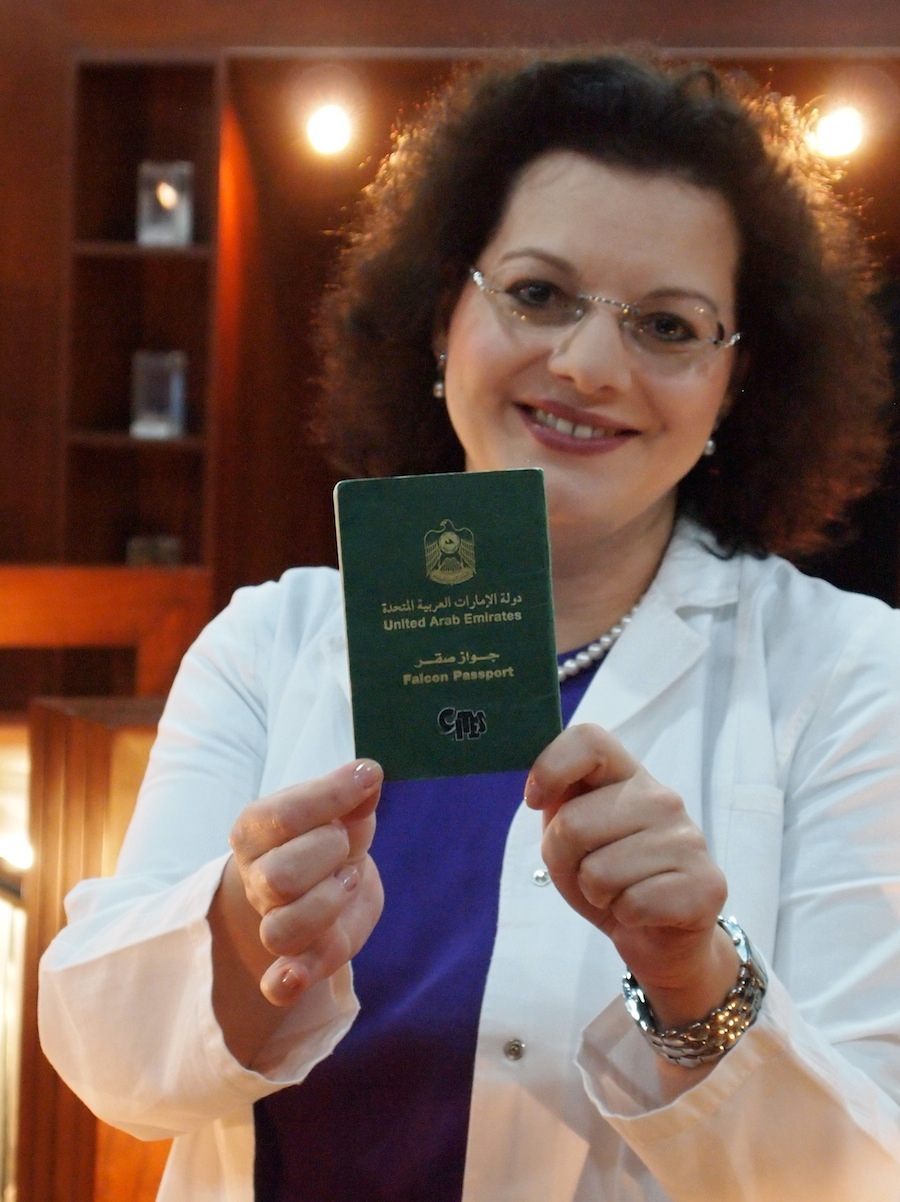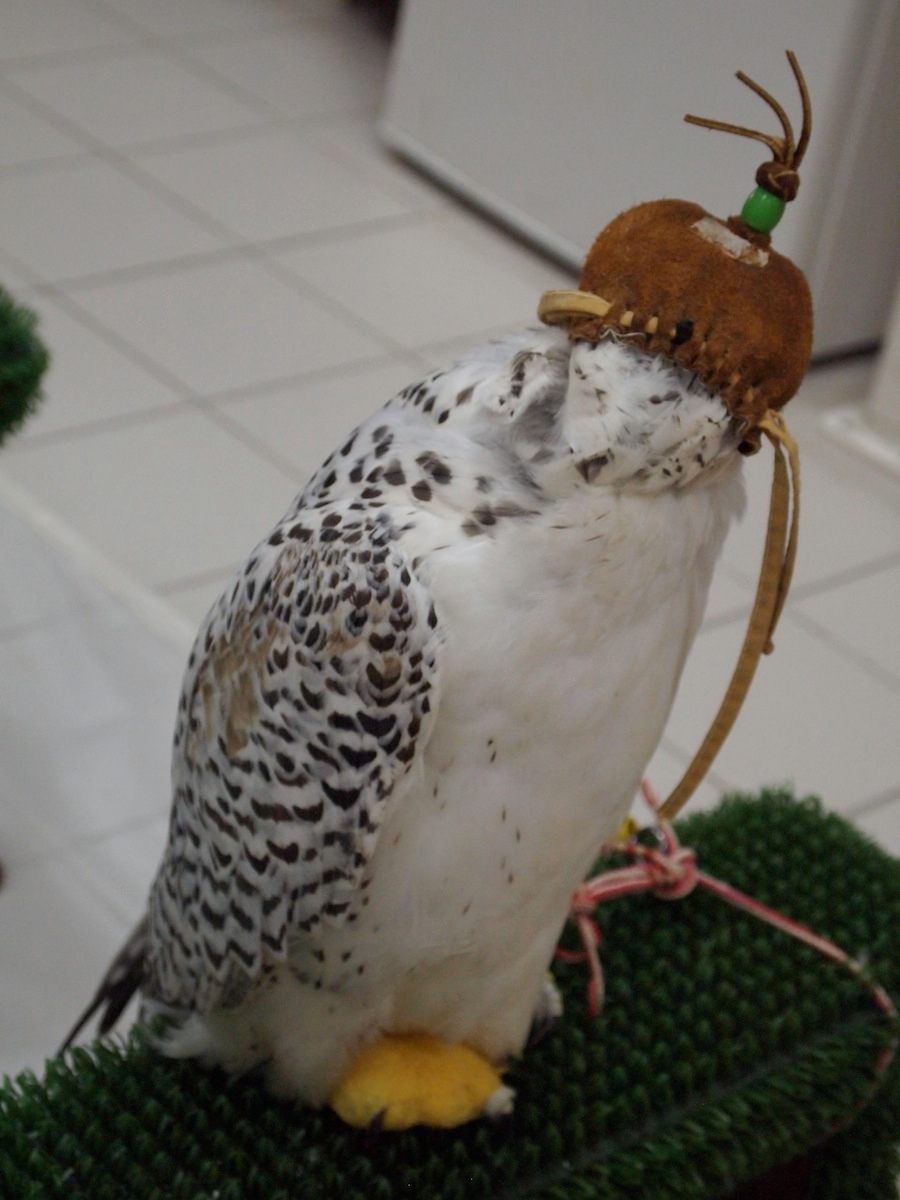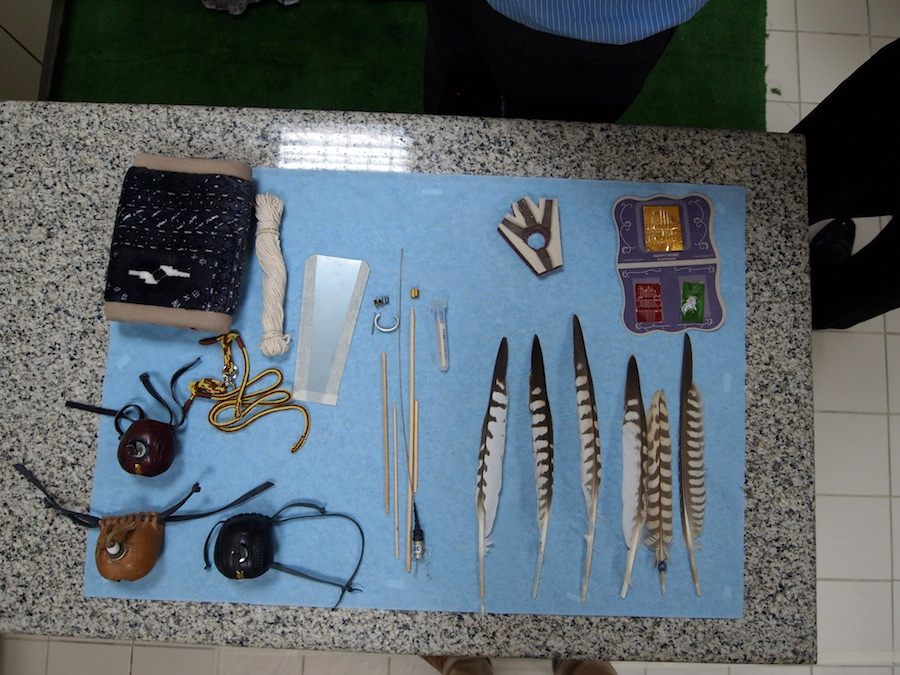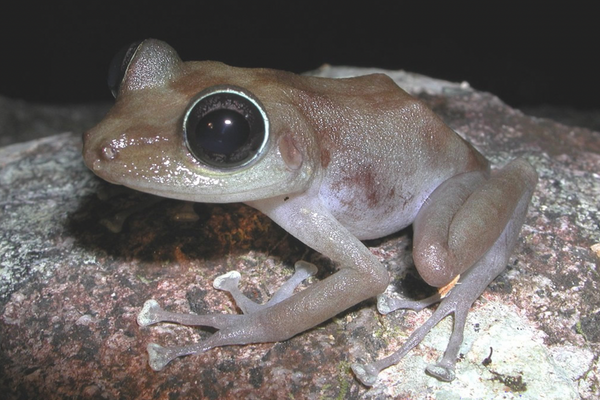A Photo Tour of the Abu Dhabi Falcon Hospital
 The Abu Dhabi Falcon Hospital (all photographs by the author)
The Abu Dhabi Falcon Hospital (all photographs by the author)
What’s the fastest animal in the world? If you guessed cheetah, you’re way off. At 60 mph, the fastest of the big cats is nowhere close to the 240 mph top speed of a diving Peregrine Falcon. Abu Dhabi in the United Arab Emirates is home to the world’s preeminent hospital dedicated exclusively to the treatment of these falcons and other birds of prey.
The Abu Dhabi Falcon Hospital was established in 1999, and as news of this strange facility spread among the UAE, curious visitors began showing up asking to have a look around. In response to the demand, the hospital established official tours in 2007, and is now a must-see destination for tourists in Abu Dhabi. After a few wrong turns, and an inexplicable trip through the airport parking lot, a friend and I managed to find our way there on a warm and sunny winter’s day.

Our tour was led by Dr. Margit Gabrielle Müller, the chief veterinarian and director of the hospital. During a brief introduction we learned that falcons have been domesticated for thousands of years, trained to kill prey and return it to a handler. Although practiced mainly as sport in Europe, falconry was an important source of food protein in the traditional Bedouin culture of the Emirates. Their primary prey is smaller birds, but can also include rabbits, snakes, and small mammals up to 20 pounds.
Today, Emiratis continue to be some of the most enthusiastic falconers in the world, paying upwards of $100,000 for the most highly prized birds. The Crown Prince of Abu Dhabi, Sheik Mohamed bin Zayed, is a devoted fan of the sport and a major patron of the hospital.



Surprisingly, the actual practice of falconry is now banned in the UAE in order to protect endangered desert wildlife. The birds are taken elsewhere to hunt — Pakistan and Afghanistan are popular destinations. Travelers flying first class from Abu Dhabi to Islamabad may find themselves sitting next to a falcon and handler, each with their own ticket and seat. The falcons even have passports, so they can travel across international borders without running afoul of the CITES convention on trade in endangered species.
 A falcon passport
A falcon passport
On our tour, we got to see some of these falcons up close and personal. We moved to the main treatment area and waiting room, where dozens of hooded falcons sat quietly on long astroturfed perches. The vast majority of the hospital’s patients are females, as they are significantly larger than males and preferred for hunting. The hoods calm the birds and prevent them from seeing their neighbors; they are aggressively territorial and prone to attack others of their own species.
 Falcon with a bandaged foot
Falcon with a bandaged foot
Much of the falcon hospital’s equipment is improvised, because there are simply no falcon-specific tools for the work they are doing. We watched one bird having its talons trimmed – which, like the nails of other domesticated animals, can grow long without the wear and tear of the wild.
She was put to sleep with a plastic hood and some kind of gas mixture, and a veterinary technician used a household angle grinder to remove the excess length. The hospital also has a full operating theatre for more complex procedures. Many of their surgical tools were originally designed for operating on premature babies, which happen to be about the same size as a full-grown falcon.
 Talon trimming
Talon trimming

Hoods, feathers, & other tools

Although many supplies can be improvised, spare feathers cannot! In the hospital waiting area there are drawers containing thousands upon thousands of individual feathers collected from molting or injured birds. Falcons are extremely fine-tuned aerodynamic machines, and a single bent or broken feather can dramatically impact their flying abilities. When a feather is damaged, the staff sifts through their collection to find the closest possible match, and then replaces the damaged section using a sewing needle and super glue.



Because the birds’ talons are incredibly strong and razor sharp, falcon handlers wear a heavy elbow-length leather glove for the bird to perch on. Everyone on our tour had an opportunity to don a glove and hold one of the falcons. At around three pounds, they are surprisingly heavy, and you really get a sense of their power when you’re that close to them.

If you are in Abu Dhabi, don’t miss the opportunity to see and interact with these animals. They are amazing in their own right, and the hospital is a great avenue into learning about the culture, history, and traditions of the Emirates. It is now open to visitors six days a week; however, space is limited so it is recommended to book in advance on the Abu Dhabi Falcon Hospital website.

Encounter more of the world’s beautiful birds on Atlas Obscura >
















Follow us on Twitter to get the latest on the world's hidden wonders.
Like us on Facebook to get the latest on the world's hidden wonders.
Follow us on Twitter Like us on Facebook